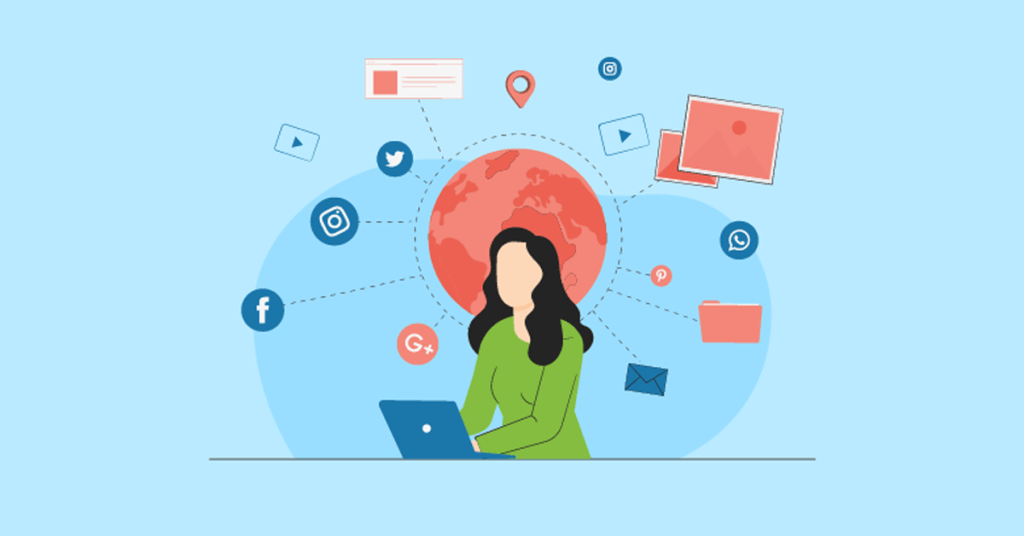In today’s digitally interconnected world, the fusion of social media and mental health has emerged as a topic of paramount importance. Social media platforms have revolutionized communication, redefining the way we connect, share, and interact. However, this transformation is not without its complexities, as the impact of social media on mental health is multifaceted.
Social media offers unparalleled opportunities for connection, expression, and information dissemination. It has provided a platform to raise awareness about mental health, challenge stigmas, and offer support. Nonetheless, concerns persist about the potential negative consequences. The culture of comparison, cyberbullying, and the pressure to project an idealized online persona can potentially compromise mental well-being.
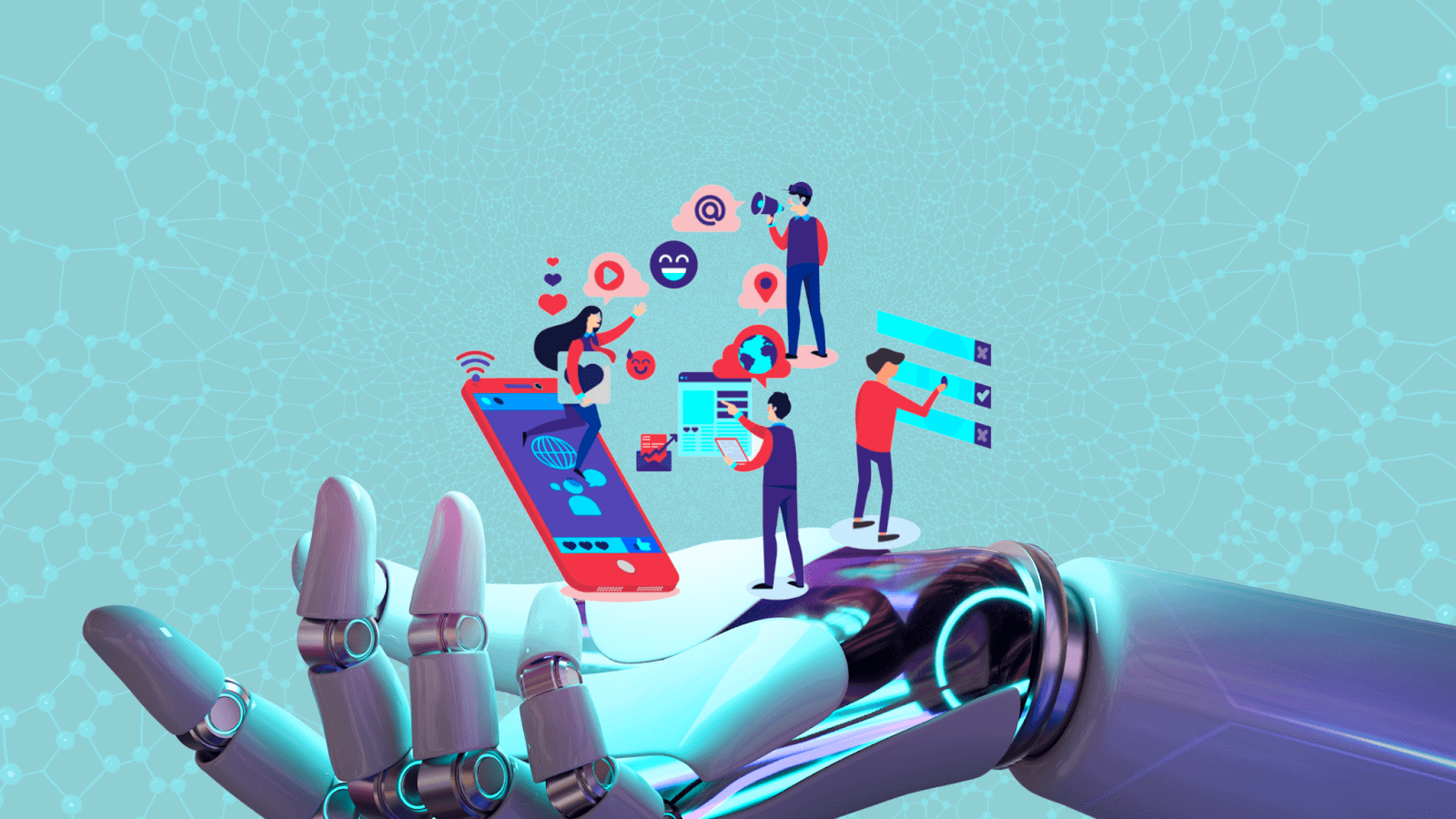
This article delves into the intricate relationship between social media and mental health, dissecting its advantages and drawbacks, and highlighting the need for a balanced and mindful approach to digital engagement. By understanding these dynamics, we can navigate social media’s landscape with greater awareness, safeguarding our mental health while harnessing its positive potential.
The Pros of Social Media on Mental Health
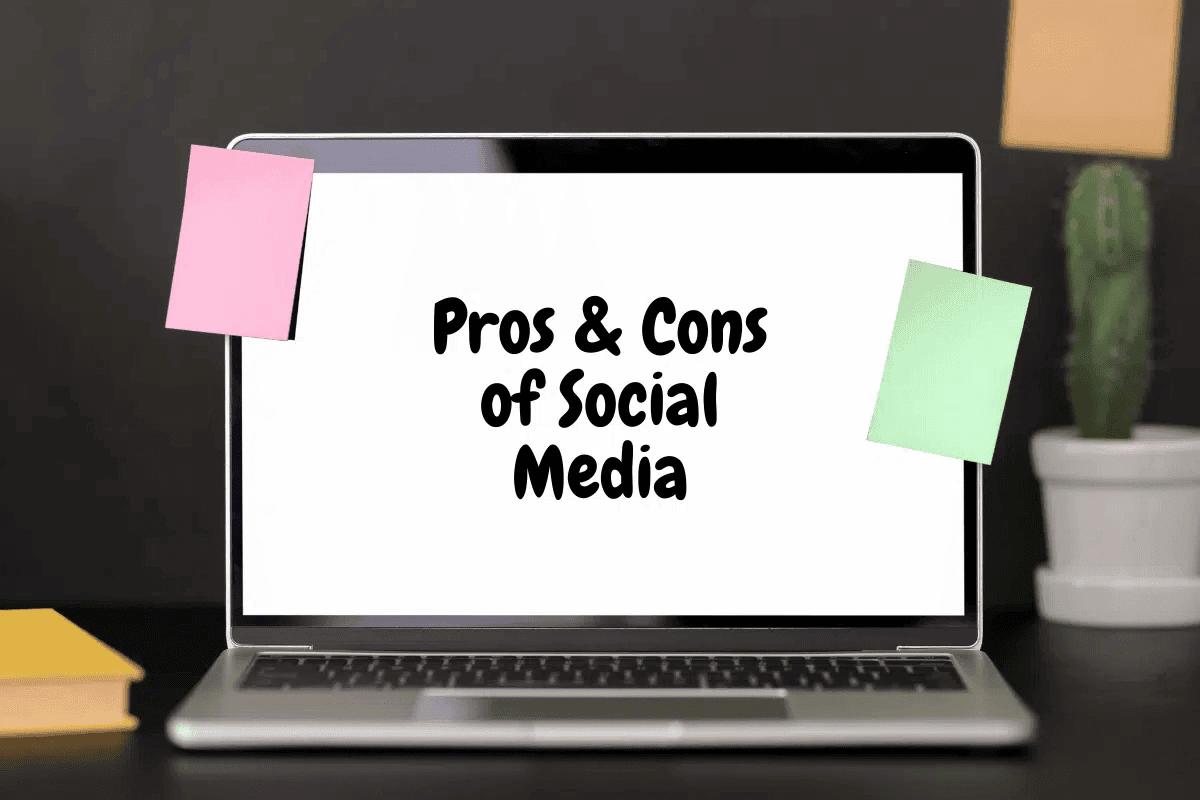
Source:socialmediavictims.org
Social media platforms have revolutionized the way we connect and communicate, offering a multitude of benefits that can positively influence our mental health. These platforms have the potential to enhance our sense of belonging, spread awareness about mental health issues, provide outlets for creative expression, offer professional opportunities, and facilitate continuous learning. Let’s explore these pros in detail:
1. Connection and Social Support
Benefit: One of the most significant advantages of social media is its ability to connect people across distances. Just like chat, it allows individuals to stay in touch with friends and family members, fostering a sense of belonging and reducing feelings of isolation, particularly for those who might be physically separated.
This is backed up by the on-point insight of Kyle Sobko, the CEO of SonderCare. “ In addition to providing a means of connecting with friends and family, social media platforms also offer a sense of community and support. Engaging with like-minded individuals who share similar interests or experiences can foster a sense of belonging and alleviate feelings of isolation. Furthermore, social media allows individuals to access mental health resources, support groups, and online therapy services, offering convenient and easily accessible avenues for seeking help and guidance,” he says.
Impact: For individuals dealing with mental health challenges, the ability to connect with support networks online can be invaluable. Online support groups and communities provide a safe space for sharing experiences, seeking advice, and receiving emotional support from individuals who can relate to their struggles.
2. Information and Awareness
Benefit: Social media acts as a powerful information-sharing platform, enabling the rapid dissemination of knowledge on different topics like mental health, managing blood pressure, building overall wellness etc. Campaigns, articles, videos, and personal stories contribute to breaking down stigmas surrounding mental health.
The same sentiment was shared by Alex Klar, the head of sales at Apptimizer.net. According to him. “Social media provides platforms for individuals to access reliable information and resources related to mental health. With the increasing number of mental health issues, it is important for people to have easy access to accurate and helpful information. Social media can help break down stigmas by facilitating sharing of experiences and support. It also connects individuals with mental health professionals, facilitating easier access to professional help.”
Impact: Increased awareness on social media has led to more open conversations about mental health. This can contribute to reducing the shame and silence often associated with these issues, encouraging individuals to seek help and support when needed.
3. Expression and Creativity
Benefit: Social media provides individuals with a platform to express themselves creatively. Users can share their art, photography, writing, and other forms of creative work, allowing for personal expression and emotional release.
Impact: Creative expression can have therapeutic effects, enabling individuals to communicate complex emotions and experiences that might be challenging to express verbally. This can be particularly beneficial for those who find it difficult to discuss their feelings in traditional settings.
4. Professional Opportunities
Benefit: Social media has transformed the way we approach professional networking and career development such as hiring fractional cfos. Individuals can showcase their skills, expertise, and personal brand on platforms like LinkedIn, opening up new career opportunities and collaborations. Even businesses like web design companies are discovering creative methods to ensure their online presence is significant through active utilization of these platforms.
Impact: For individuals struggling with mental health concerns, the flexibility of remote work and freelance opportunities available through social media can provide a way to earn a living while managing their well-being.
5. Education and Learning
Benefit: Social media serves as a vast repository of educational content. From online courses, tutorials and engaging webinars to informative articles and videos, these platforms offer opportunities for continuous learning and skill development.
Impact: Engaging with educational content related to mental health can empower individuals to better understand their own well-being, recognize signs of mental health issues, and learn coping strategies that promote resilience and self-care.
The Cons of Social Media on Mental Health
While social media platforms offer numerous benefits, they also come with potential drawbacks that can significantly impact our mental health. These cons highlight the darker side of digital interaction, including social comparison, cyberbullying, the fear of missing out (FOMO), privacy concerns, and the potential erosion of face-to-face interactions. Let’s delve into these cons in detail:
1. Social Comparison and Envy
Drawback: Social media often presents an idealized version of people’s lives, showcasing their achievements, milestones, and positive experiences. This can lead to social comparison, where individuals measure their own lives against the seemingly perfect lives of others.
Impact: Constant exposure to others’ successes can foster feelings of inadequacy, jealousy, and low self-esteem. Individuals might start believing that their own lives are lacking in comparison, leading to a negative impact on their mental well-being.
2. Cyberbullying and Online Harassment
Drawback: The anonymity provided by social media platforms can lead to the rise of cyberbullying and online harassment. Individuals, especially adolescents, can become targets of hurtful comments, threats, and demeaning messages.
Impact: Victims of cyberbullying can experience significant emotional distress, anxiety, and depression. In severe cases, the relentless online attacks can contribute to self-esteem issues and even lead to self-harm or suicidal thoughts. You should keep in mind that therapy is the right option if things escalate and your mental health is affected. You can try online therapy so you won’t have to travel to a therapist’s office to prioritize your mental health.
3. Fear of Missing Out (FOMO)
Drawback: Social media’s constant stream of updates about social events, parties, and gatherings can trigger the fear of missing out (FOMO). This fear of being left out can lead to anxiety and a sense of disconnection.
Impact: The pressure to participate in every social event can be overwhelming, leading to burnout and heightened anxiety. FOMO can also contribute to a sense of inadequacy if one feels they’re not leading a life as exciting as those portrayed online.
4. Privacy Concerns
Drawback: Social media platforms often require users to share personal information, which can raise concerns about data privacy and security. Unauthorized access to this data can lead to identity theft, stalking, and other forms of digital intrusion.
Impact: The fear of personal information being misused or compromised can result in heightened anxiety and stress. Individuals might also feel vulnerable knowing that their private lives are exposed to a wide audience.
5. Reduced Face-to-Face Interactions
Drawback: Excessive reliance on social media for communication can lead to a decline in face-to-face interactions. This shift can impact the development of interpersonal skills and hinder the formation of deep, meaningful relationships.
Impact: Face-to-face interactions play a crucial role in building emotional connections and empathy. Reduced in-person interactions can contribute to feelings of loneliness, isolation, and a sense of disconnect from real-life experiences.
The Impact of Social Media on Mental Health
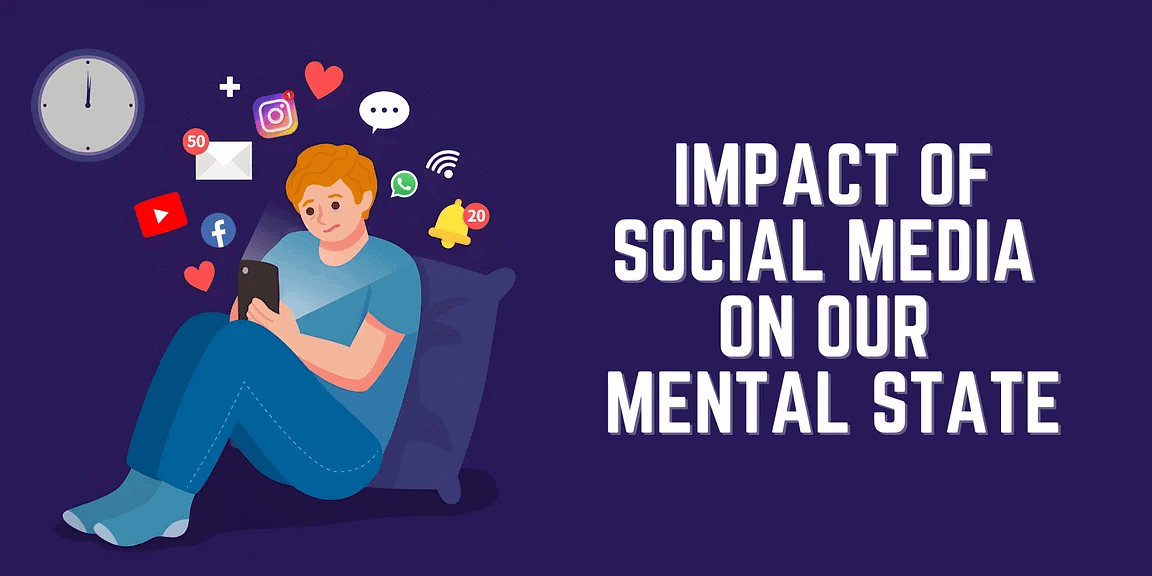
Source :yourstory.com
The relationship between social media and mental health is intricate and multifaceted. While social media platforms offer both positive and negative aspects, their impact on mental well-being can vary widely depending on individual usage patterns, susceptibility to certain influences, and personal coping mechanisms. In this section, we will delve into the overarching impact of social media on mental health, examining both the positive and negative outcomes.
1. Positive Impact
Connectivity and Support:
Social media enables individuals to connect with friends, family, and like-minded communities regardless of geographical barriers. For those dealing with mental health challenges, these platforms can serve as a lifeline to a supportive network of peers who understand their experiences. Online support groups can provide validation, comfort, and a sense of belonging that may be lacking in offline interactions.
Awareness and Education:
Social media has played a pivotal role in breaking down the stigma surrounding mental health. Online campaigns, personal stories, and informative content have raised awareness and fostered open conversations about mental well-being. This increased awareness can encourage individuals to seek help and reduce feelings of isolation.
Creative Expression:
Social media offers a platform for creative self-expression, allowing individuals to share their talents and passions with a wide audience. Engaging in creative activities online can promote a sense of accomplishment and enhance self-esteem, positively impacting mental health.
2. Negative Impact
Social Comparison and Envy:
The curated nature of social media often leads to unhealthy social comparison. Constant exposure to polished versions of others’ lives can create unrealistic expectations and lead to feelings of inadequacy and envy, potentially contributing to anxiety and depression.
Cyberbullying and Harassment:
The anonymity provided by social media can facilitate cyberbullying and online harassment. Victims of such behavior may experience profound psychological distress, damaging their self-esteem and overall mental health.
Mental Health Decline:
Excessive time spent on social media can lead to a decline in mental well-being. The constant influx of information and the pressure to maintain a perfect online image can contribute to stress, anxiety, and even depression.
Disruption of Real-Life Interactions:
Over Reliance on digital communication can erode face-to-face interactions, leading to a sense of loneliness and isolation. Genuine, in-person connections are essential for emotional well-being and can mitigate the negative effects of digital interactions.
Strategies for Maintaining a Healthy Online Presence
In an era dominated by social media, it’s crucial to strike a balance between staying connected and safeguarding your mental well-being. Adopting mindful practices and implementing strategies can help you maintain a healthy online presence while minimizing the potential negative impacts on your mental health. Here are some effective strategies to consider:
1. Limit Screen Time
Practice: Set designated periods for using social media, and adhere to them strictly. Consider using apps or device features that track and limit screen time to prevent mindless scrolling. To limit screen time, we recommend using email templates. With this style, you can respond rapidly to conversations without staying on your PC for long.
Impact: Limiting screen time reduces exposure to potential triggers and frees up time for real-life interactions, hobbies, and self-care activities that contribute positively to your mental health. Moreover, limiting screen time enhances time efficiency, giving you more control over your time and activities, fostering better mental health through balanced engagement.
2. Curate Your Feed
Practice: Unfollow accounts that consistently trigger negative emotions or comparisons. Follow accounts that promote positivity, inspire you, or provide educational content related to mental health.
Impact: A curated feed ensures that your online experience is uplifting and supportive, reducing exposure to content that might contribute to feelings of inadequacy or anxiety.
3. Practice Digital Detox
Practice: Dedicate regular intervals, such as weekends or evenings, to disconnect from social media completely. Engage in offline activities that bring you joy and relaxation.
Impact: Digital detoxes allow you to recharge, reconnect with the physical world, and reduce the emotional strain that constant online engagement can bring.
4. Seek Professional Help
Practice: If you find that social media is significantly impacting your mental health, consider seeking support from a mental health professional. They can offer guidance, coping strategies, and tools to manage the challenges posed by online interactions. Telehealth for mental health care offers a flexible and accessible way to connect with professionals, allowing you to receive the support you need from the comfort of your home.
Impact: A mental health professional can provide tailored advice to help you navigate the digital landscape in a way that supports your well-being.
5. Mindful Posting
Practice: Before sharing content, reflect on your intentions and potential impact. Be mindful of the emotions your posts might evoke in yourself and others.
Impact: Mindful posting encourages positive interactions, reduces the risk of regrettable posts, and promotes authentic expression that aligns with your values.
6. Practice Self-Compassion
Practice: Be kind to yourself when using social media. Remember that everyone’s online presence is a curated version of reality, and imperfections are natural.
Impact: Cultivating self-compassion helps mitigate the negative impact of social comparison and reduces the pressure to conform to unrealistic standards.
7. Set Realistic Expectations
Practice: Understand that not every post needs to garner likes or comments. Adjust your expectations about engagement and focus on the value you derive from your online interactions.
Impact: Realistic expectations reduce the risk of disappointment and allow you to engage with social media without seeking external validation.
8. Use Positive Affirmations
Practice: Incorporate positive affirmations into your social media routine. Remind yourself of your worth, strengths, and accomplishments regularly.
Impact: Positive affirmations counteract the negative effects of social comparison and contribute to improved self-esteem and mental well-being.
9. Prioritize Offline Connections
Practice: Make an effort to engage in face-to-face interactions. Plan outings, meetings, or gatherings that allow you to connect with friends and loved ones in person.
Impact: Offline interactions provide genuine emotional connections that support your mental health and counterbalance the potential isolation of digital communication.
The Future of Social Media and Mental Health
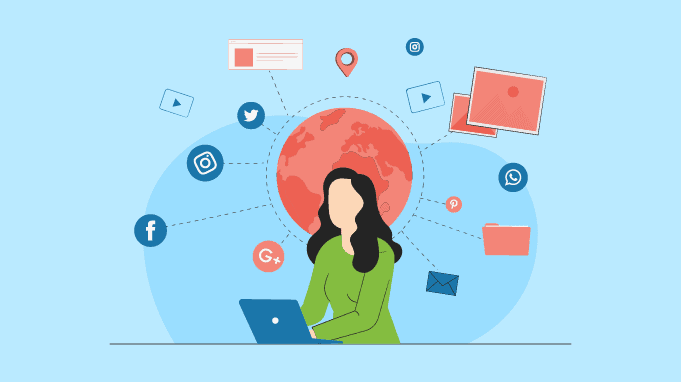
Source:vantagefit.io
As technology continues to evolve at a rapid pace, the relationship between social media and mental health is poised for further transformation. The future of social media holds both promising advancements and potential challenges, each with significant implications for our mental well-being. Let’s explore some of the key trends and possibilities that might shape this dynamic intersection:
1. Enhanced Mental Health Support
Trend: Social media platforms are likely to integrate more mental health support features. AI-driven algorithms could identify users displaying signs of distress and offer resources or connections to mental health professionals.
Impact: This could bridge the gap between digital interaction and mental health care, providing timely support to those in need and reducing the stigma associated with seeking help.
2. Emphasis on Well-Being Metrics
Trend: Social media platforms might shift their focus from engagement metrics (likes, comments) to well-being metrics. Algorithms could prioritize content that promotes positive emotions and connections.
Impact: Such a shift could encourage users to share content that resonates with their genuine experiences rather than catering to likes, fostering more authentic interactions.
3. Virtual Reality (VR) and Augmented Reality (AR)
Trend: The integration of VR and AR into social media could offer immersive experiences that enhance connectivity. Virtual meetups, events, and support groups could become more prevalent.
Impact: VR and AR might provide new avenues for social interaction, but careful implementation is necessary to ensure they enhance, rather than replace, real-life connections.
4. Digital Well-Being Education
Trend: Schools and educational institutions might incorporate digital well-being education into their curricula, teaching students how to navigate social media mindfully and recognize potential pitfalls.
Impact: Empowering young people with the skills to engage with social media critically and responsibly could foster a generation that prioritizes mental health in their online interactions.
5. Personalized Mental Health Content
Trend: AI algorithms could personalize content related to mental health based on user preferences and needs. This might involve tailored resources, articles, and support based on individual profiles.
Impact: Personalized content could deliver relevant information to users, but it also raises concerns about privacy and the ethical use of personal data.
6. Ethical Design and Regulation
Trend: Pressure might grow for social media platforms to adopt more ethical design principles, such as reducing addictive features and safeguarding user data. Regulatory bodies might enforce guidelines to protect mental health.
Impact: Ethical design and regulation could lead to platforms that prioritize user well-being over engagement metrics, resulting in healthier online environments.
7. Holistic Well-Being Integration
Trend: Social media platforms could integrate with wearable devices and health apps, providing users with a comprehensive view of their physical and mental well-being.
Impact: Holistic well-being integration could encourage users to consider their mental health in relation to other aspects of their lives, promoting a more balanced approach to self-care.
Final Thoughts on Social Media and Mental Health
In the intricate landscape of social media and mental health, a duality emerges. While these platforms offer connection, information, and expression, they also pose risks of comparison, cyberbullying, and privacy concerns. Striking a balance is paramount: curate your feed, limit screen time, and prioritize offline interactions. The future holds potential for enhanced support and ethical design. Mindful engagement is the key; by understanding the nuanced impact, seeking professional help when needed, and practicing self-care, we can navigate this digital realm with resilience. Ultimately, our choices determine whether social media enriches our lives positively or contributes to mental health challenges.
